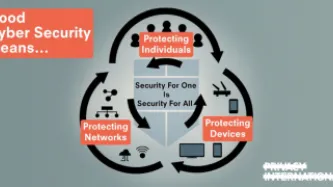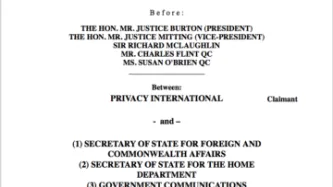Impact Search
Our impact in the world
Content type: Long Read
For many, browsing the internet or checking social media comes with its fair share of being targeted with ads selling “fad diet” subscription-based programmes, magic weight-loss powders, or promising a secret trick to lose weight quickly. Some of the products and programmes sold have been described as scams, with a very real impact for those suffering from eating disorders and those who fall prey to these ads. This is even more problematic due to the Covid-19 pandemic, which has seen the…
Content type: Long Read
Introduction
In August 2019, when Facebook announced a few new features for advertisers such as ads in search, PI decided to take an in-depth look at what features the company offers its users when it comes to understanding its advertising practices. One of these features, which caught our attention is Facebook Ads Preference, a tool that among other things, lists businesses/advertisers that have uploaded your personal data to target you with (or exclude you from) ads on the platform.
Content type: Long Read
This article has been written by our partner organisation InternetLab. Read this article in Portuguese here.
Over the last months, the organisation InternetLab has researched privacy, data protection, gender, and social protection, focusing on the beneficiaries of the Bolsa Familia Program (PBF). The PBF is the most extensive Brazilian cash transfer program, and its functioning is linked to CadÚnico, a database that comprises 40% of the country’s population. Moreover, it is a program whose…
Content type: Report
The changes discussed in this article are based on a second analysis performed in late November, 3 months after the original study Your Mental Health is for Sale and following the exact same methodology. All data collected can be found at the bottom of this page.
Change is possible
Back in September 2019 we published the report Your Mental Health is for Sale exposing how a majority of the top websites related to mental health in France, Germany and the UK share data for advertising purposes.…
Content type: Long Read
The pressing need to fix our cybersecurity (mis)understandings
Despite all the efforts made so far by different, cybersecurity remains a disputed concept. Some states are still approving cybersecurity laws as an excuse to increase their surveillance powers. Despite cybersecurity and cybercrime being different concepts, the confusion between them and the broad application of criminal statutes is still leading to the criminalise legitimate behaviour.
All of this represents a sizable challenge…
Content type: Long Read
Photo by Nadine Shaabana on Unsplash
Digital identity providers
Around the world, we are seeing the growth of digital IDs, and companies looking to offer ways for people to prove their identity online and off. The UK is no exception; indeed, the trade body for the UK tech industry is calling for the development of a “digital identity ecosystem”, with private companies providing a key role. Having a role for private companies in this sector is not necessarily a problem: after all, …
Content type: Long Read
In December 2018, Privacy international exposed the dubious practices of some of the most popular apps in the world.Out of the 36 apps we tested, we found that 61% automatically transfer data to Facebook the moment a user opens the app. This happens whether the user has a Facebook account or not, and whether they are logged into Facebook or not. We also found that some of those apps routinely send Facebook incredibly detailed and sometimes sensitive personal data. Again, it didn’t matter if…
Content type: Long Read
Six years after NSA contractor Edward Snowden leaked documents providing details about how states' mass surveillance programmes function, two states – the UK and South Africa – publicly admit using bulk interception capabilities.Both governments have been conducting bulk interception of internet traffic by tapping undersea fibre optic cables landing in the UK and South Africa respectively in secret for years.Both admissions came during and as a result of legal proceedings brought by Privacy…
Content type: Long Read
On 17 October 2016, the Investigatory Powers Tribunal handed down judgment in a case brought by Privacy International against the Foreign Secretary, the Home Secretary and the three Security and Intelligence Agencies (MI5, MI6 and GCHQ).
The case concerned the Agencies’ acquisition and use of bulk personal datasets (‘BPD’) – datasets that contain personal data about individuals, the majority of whom are unlikely to be of intelligence interest, such as passport databases and finance-related…








